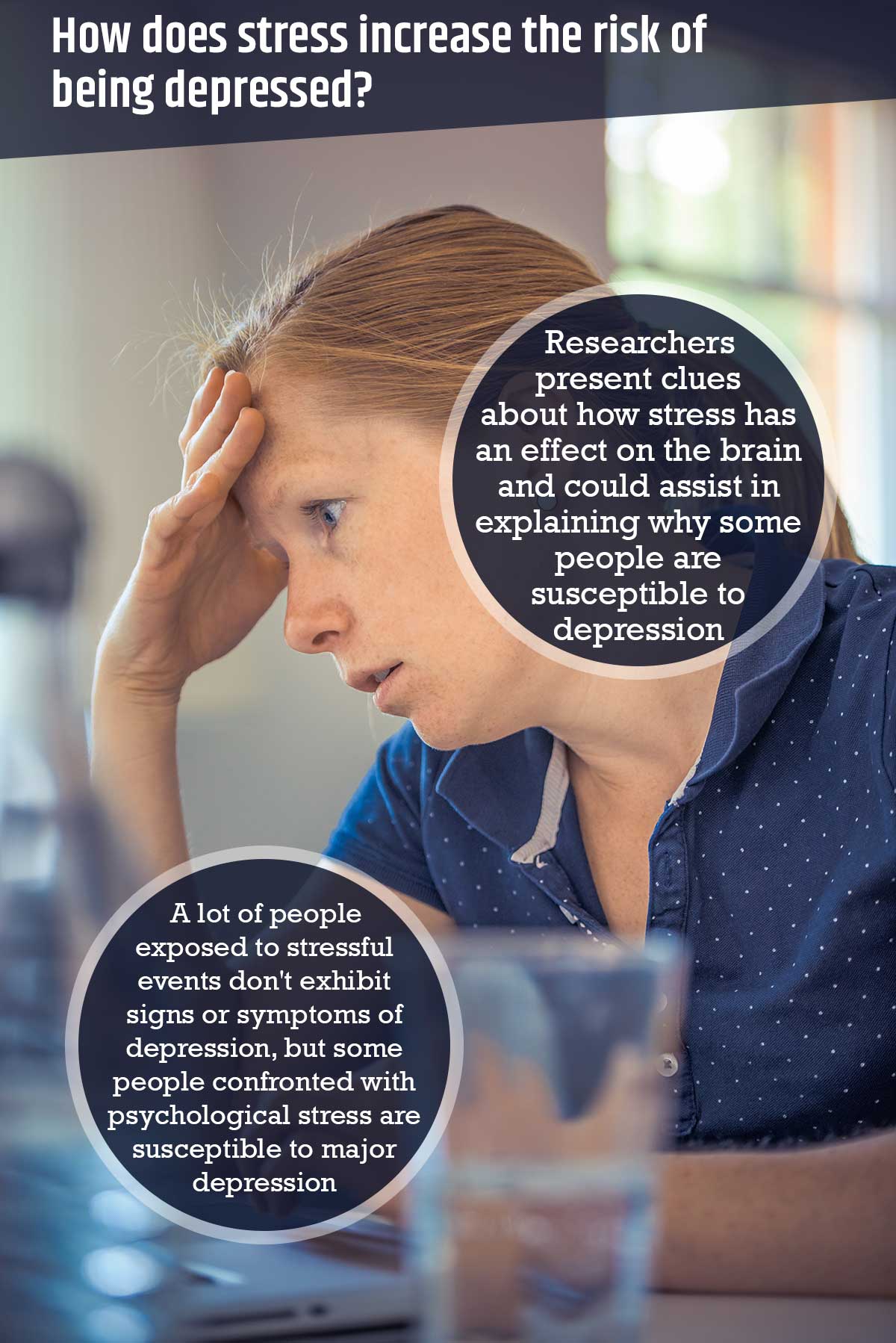Researchers present clues about how stress has an effect on the brain and could assist in explaining why some people are susceptible to depression whenever they encounter chronic stress.1✅ JOURNAL REFERENCE
DOI: 10.1016/j.neuron.2010.12.023
The study reveals complex molecular mechanisms related to chronic stress and could help to develop new treatment approaches for depression.
A lot of people exposed to stressful events don’t exhibit signs or symptoms of depression, but some people confronted with psychological stress are susceptible to major depression.
So far, the molecular mechanisms underpinning the susceptibility and adaptation to chronic stress in the brain are inadequately understood.
The researchers made use of 2 genetically unique mouse strains that show distinctive behavioral responses to chronic stress to try to find genetic mechanisms linked to vulnerability to stressful events.
They discovered that, compared with the stress-resilient mice, the stress-vulnerable mice showed depression-like behaviors when confronted with chronic mild stress (social and environmental stressors that don’t include water or food deprivation).
The stress-vulnerable mice had a lesser level of Gdnf (glial cell-derived neurotrophic factor) gene expression. Neurotrophic factors are proven to be necessary for brain plasticity regulation and have been suggested as a factor in depression.
The lessened level of Gdnf expression was caused by DNA methylation and histone changes. These modifications and the depressive behaviors were corrected by treating the stress-vulnerable mice using antidepressants.
Dynamic epigenetic regulations of the Gdnf gene play significant roles in identifying both the susceptibility and the adaptation responses to chronic stressful events.



